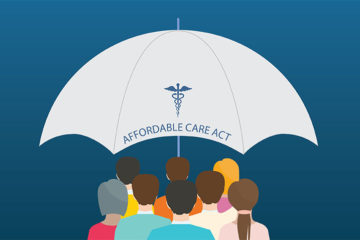Picking the right insurance plan can be one of the most challenging decisions that we face as adults. If you work for an employer that has multiple health insurance plans then it can be downright overwhelming. So let me help you decipher the health insurance landscape as well as how to make the best informed decisions for your insurance that best fits your family.
(1) Factors to Consider When Picking the Right Insurance Plan
If you are not sure what some of the following terms mean, here is an article that explains how exactly health insurance works.
There are several different factors to consider when you are picking your health insurance plan that you will have to balance. However, these are the major ones.
- Your overall health. If you are someone who needs any specific type of medical treatment (especially if it is life-saving) make SURE that your potential health insurance plan covers it. You can go to your human resources department and they will have documentation on what procedures, drugs, treatments, etc. are covered and not covered with each healthcare plan.
- Also, if something like laser eye surgery is something that you might want to get (or another elective procedure), make sure to look for an insurance policy that will cover that. You may or may not find one, but you should at least look.
- Your family situation. Are you married? Does your spouse have medical insurance outside of your job? Do you have kids and who is going to cover them? If you are planning on having children then you need to take into account the amount that a pregnancy and birth will cost.
- Some health insurance plans will have a certain rate for an individual, then another rate for an individual and a spouse, and then another rate for an entire family. Some other policies will have just rates for individuals and families.
- How much are the premiums? The premiums are important because this is the amount of money that will be taken out of each of your paychecks. Don’t always just go for the cheapest option (you need to make sure that the coverage fits your situation). But make sure to not pick an option with a premium that is so expensive that you can’t pay your other bills and you don’t have enough money left over.
- Make sure to consider any future pay raises that you might get as well. And also understand that you will have the option to change your health insurance options at a later date (usually during a few weeks during the year called “open enrollment”).
- Know how much the deductible is. The deductible is the amount of money that you will have to pay before your insurance company starts to pay any money. Some insurance plans have a $0 deductible while others can be as high as $15,000-20,000. Generally, the lower the deductible is, the higher the premiums will be. And the higher the deductible is then the lower the premiums will be.
- This one is REALLY important. You will have to pay some amount of money when you first get a hospital bill. A lot of people don’t realize that. You will have to pay the bills up to your deductible amount. Make sure that you save enough money in an HSA, FSA, or savings account to cover those expenses.
- Wait time. Generally you will have to wait for a specific period of time when you start a new job before your insurance will kick in. This is usually a limitation based on your employer and not the insurance company. However, not always.
- Wait times can vary wildly. I have seen wait times as long as 6 months. However, more and more employers are shortening the waiting times for your health insurance coverage to kick in. In fact, it is pretty common to have health insurance kick in on your first day of work.
- Max out of pocket cost. This one can be a big deal if you have bad health and need to go to the doctor or have medical procedures done on a regular basis or if you have some sort of a catastrophe (a really bad car accident, an unexpected heart attack, a cancer scare, etc.). If you are in bad health and are constantly having medical bills, you might want to consider a plan with a lower max out of pocket because that will be less money that you have to pay normally.
- Once you hit the max out of pocket amount in your health insurance plan, you will not have to pay any more money. However, max out of pocket amounts are often $5,000-25,000. So be prepared for this worst case scenario if you can.
Final Thoughts
Picking the right insurance plan can seem daunting. However, if you just consider these factors, then your decision can be a lot easier.
And remember, if you choose the wrong insurance plan, it’s not the end of the world. You will get to change your plan each year if you want/need to.
You can do this! Don’t be scared!
I’m here to help you!
Until next time!



0 Comments